“Ali has really enjoyed the challenges associated with all aspects of theatre. Watching her tackle Shakespeare, Ionesco, and all manner of writers and roles and develop a level of confidence and maturity is incredible. Her academic growth has been equally impressive and we believe her theatre experiences have absolutely underpinned her intellectual and academic development.””
The Theatre Department at The Chicago Academy for the Arts involves immersive training in theatre and performance studies. In addition to regular and intensive work in the Acting Studio, Theatre students explore topics that fall under four curricular headings: Acting, Performance Techniques, Theatre Studies, and Production & Technical Theatre.
Projects and units that fall under these headings may include Stagecraft, Directing, Auditioning and Professional Business, Dialects, Stage Combat, Improvisation, Acting for the Camera, Playwriting, Circus and others. This model is integrated at every stage with contemporary and classical texts.
Projects will often culminate in a showcase of the student’s work.
Acting Studio is at the core of our work in the Theatre Department. Training in the Academy Theatre Department uses our unique Academy Actor Training Approach (see below).
Studio classes are typically divided into three sections: Introductory, Intermediate, and Advanced. Students who enter the program as freshmen can, in general, expect to progress sequentially through the acting curriculum. The theatre faculty will maintain consistent communication with the student about their progress.
Productions and performance opportunities in the Theatre Department showcase the top-tier acting and performance training our students receive. A typical production schedule includes a Fall Play, a Spring Play, a Shakespeare Festival in January in conjunction with the Musical Theatre Department, as well as several other performance opportunities based on the coursework for the semester. These opportunities may include one to two Directing Showcases, a Circus Project Culmination, a reading of Playwriting finals, and others. We also encourage our department members to audition for student films in the Media Arts Department.
Recent mainstage plays have included The Three Musketeers by Catherine Bush, The Skin of Our Teeth by Thornton Wilder, Little Wars by Steven Carl McCasland, Men on Boats by Jaclyn Backhaus, Everybody by Branden Jacobs-Jenkins, The Curious Incident of the Dog in the Night-time by Simon Stephens, The Wolves by Sarah DeLappe, The Aliens by Annie Baker, columbinus by PJ Paparelli and Stephen Karam, Sense and Sensibility adapted by Kate Hamill, and She Kills Monsters by Qui Nguyen.
Guest artists will work with our students on immersive project experiences and shorter workshops. While our department faculty is made up of working professionals from the Chicago Theatre Community, The Academy is active in finding other artists to engage with our students. Recent and upcoming lecturers and instructors have included Peggy Roeder, Leah Urzendowski, Anthony Courser, Adrian Danzig, Kevin Mimms, Sylvia Hernandez-DeStasi, Darian Tene, Elizabeth Laidlaw, Kevin Beverley, Alex Aguilar, Jose Ramos, Leah Orleans, Orion Couling, Sara Gammage and others.
Play attendance in our vibrant Chicago theatre scene is another highly integral piece of our curriculum. We attend several professional plays during the school year. These productions are carefully selected to intersect with our coursework and will, as often as possible, include plays that we are reading in the Theatre Curriculum. In addition to attending the productions, we will provide opportunities for students to interact with production staff and cast members of the plays when possible.
Graduates of the Theatre Department attend programs at the nation’s leading conservatories, universities, and professional schools. Alumni may be seen on and off Broadway, in regional theatre productions, on television, and in major motion pictures.
Theatre Department FAQ’s
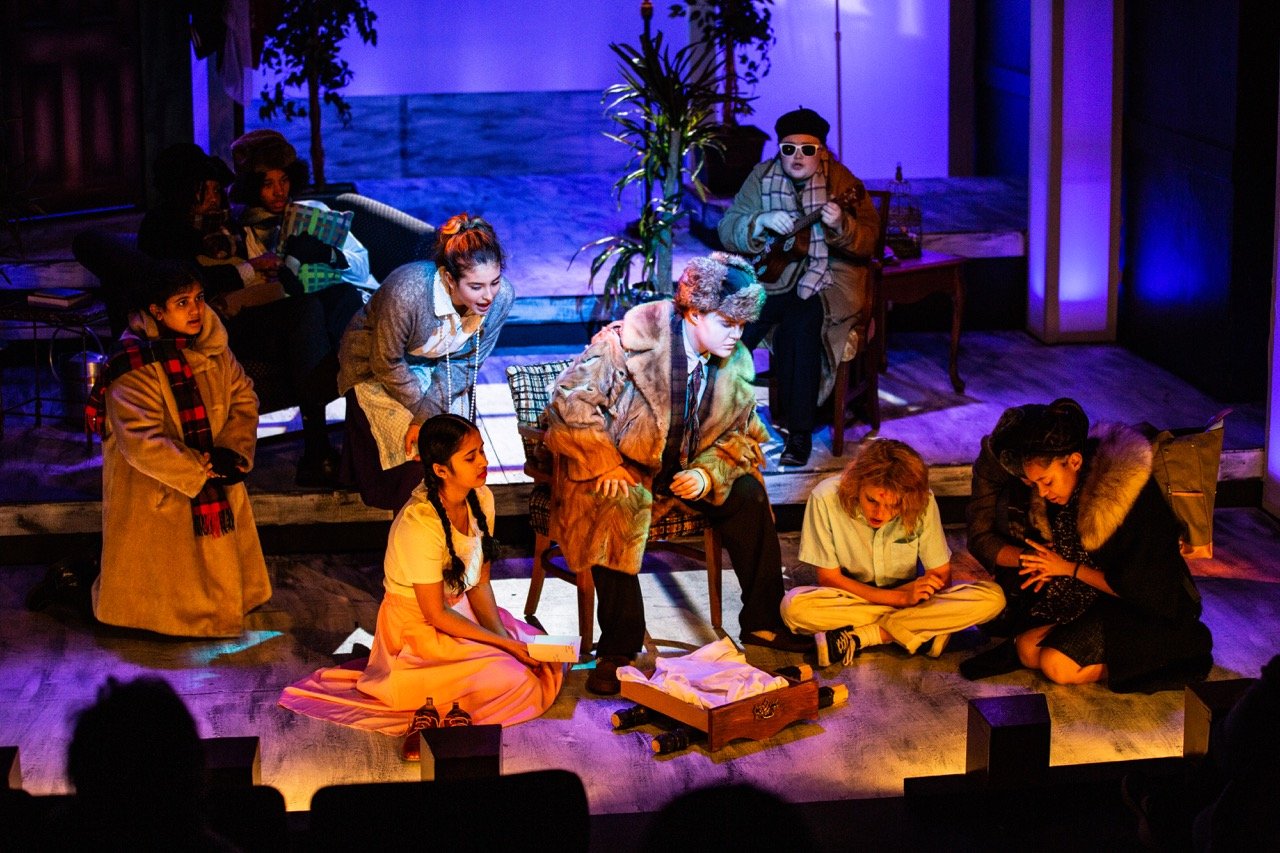
The Skin of Our Teeth, 2022
What’s the difference between Theatre and Musical Theatre at The Chicago Academy for the Arts?
In the Theatre Department, we train students to think about the entirety of the discipline of theatre-making and the expansive range of opportunities therein. Students who graduate from our program may want to pursue acting, directing, playwriting, devising, improv, stagecraft, production, stage management, or all of the above.
In the Musical Theatre Department, graduates gain the necessary tools to become performers in the genre of musical theatre with rigorous training in singing, acting, and dancing.
What do graduates from the Theatre Department go on to do?
Lots of things. Many of our students matriculate into schools that specialize in actor training while others pursue liberal arts colleges that have strong theatre programs. Supported by our strong academic program, students will also pursue a non-arts major in college. Occasionally, students will enter the business of acting and theatre straight from high school.
How many hours a week do I attend my theatre classes?
In a typical week, you can expect to study in your department for a minimum of 15 hours and a maximum of 25 hours while in rehearsals for one of our productions.
Where did the Theatre Department faculty receive their theatre training?
Our dedicated theatre faculty all have years of extensive training and professional work. Check out their bios below to find out more about them.
How do you handle casting for your department productions?
Each play produced in the department (fall mainstage, spring mainstage, and Shakespeare Festival) is chosen with the current ensemble of actors in mind. By the time our students are seniors, our faculty is intimately familiar with their unique skills and talents. Our show selection and casting takes into account each year’s specific ensemble.
More about the Theatre Department
The Theatre Department audition is comprised of three parts: a monologue(s) audition, a “cold-read” of a scene with a current Academy student, and an interview with our faculty.
In this behind-the-scenes look, Music Department Chair Rachel Brown shares how The Academy's Music and Theatre Departments worked together to bring this exciting production to the stage.
Kevin Miles (Theatre ‘08) and The Academy on ABC 7 News!
Hear from Academy seniors!
Pictures from the 2021 Summer Program!
Read more from Theatre Chair Ben Dicke on the Theatre Department’s Spring Production of She Kills Monsters.
Check out the 2021 Brush Up Your Shakespeare Festival!
Theatre Department Chair Ben Dicke discusses The Academy Method and cultivating relationships.
A small army of faculty began a two-day, 400-mile caravan, stopping at each senior’s home to hand-deliver diplomas and personally applaud each graduate. Congratulations to the Class of 2020!
Hear from Theatre Department Chair Ben Dicke about their upcoming performance of Peter and the Starcatcher.
Pictures from the 2019 Alumni Party, updates of Alumni Grants, the 2020 Alumni Challenge, and Showcase Honoring Margy Stover
Join the Theatre and Musical Theatre Departments for their 14th annual Brush Up Your Shakespeare Festival!
Kevin Miles (Theatre ‘08) and The Academy on ABC 7 News!
Grania McKirdie in the Beverly Review, CBS Radio, and WGN!

The Theatre Department previews their Spring Play "The Curious Incident of the Dog and the Night-time" at Showcase 2019!



A scene from Theatre and Musical Theatre's joint presentation of As You Like It in Fall 2016.
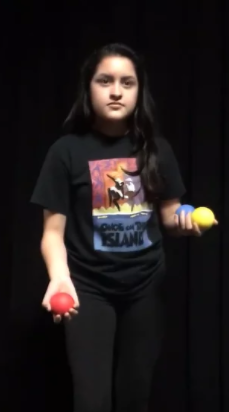
The Theatre Department takes on the Mannequin Challenge prior to their Fall Circus Showcase!
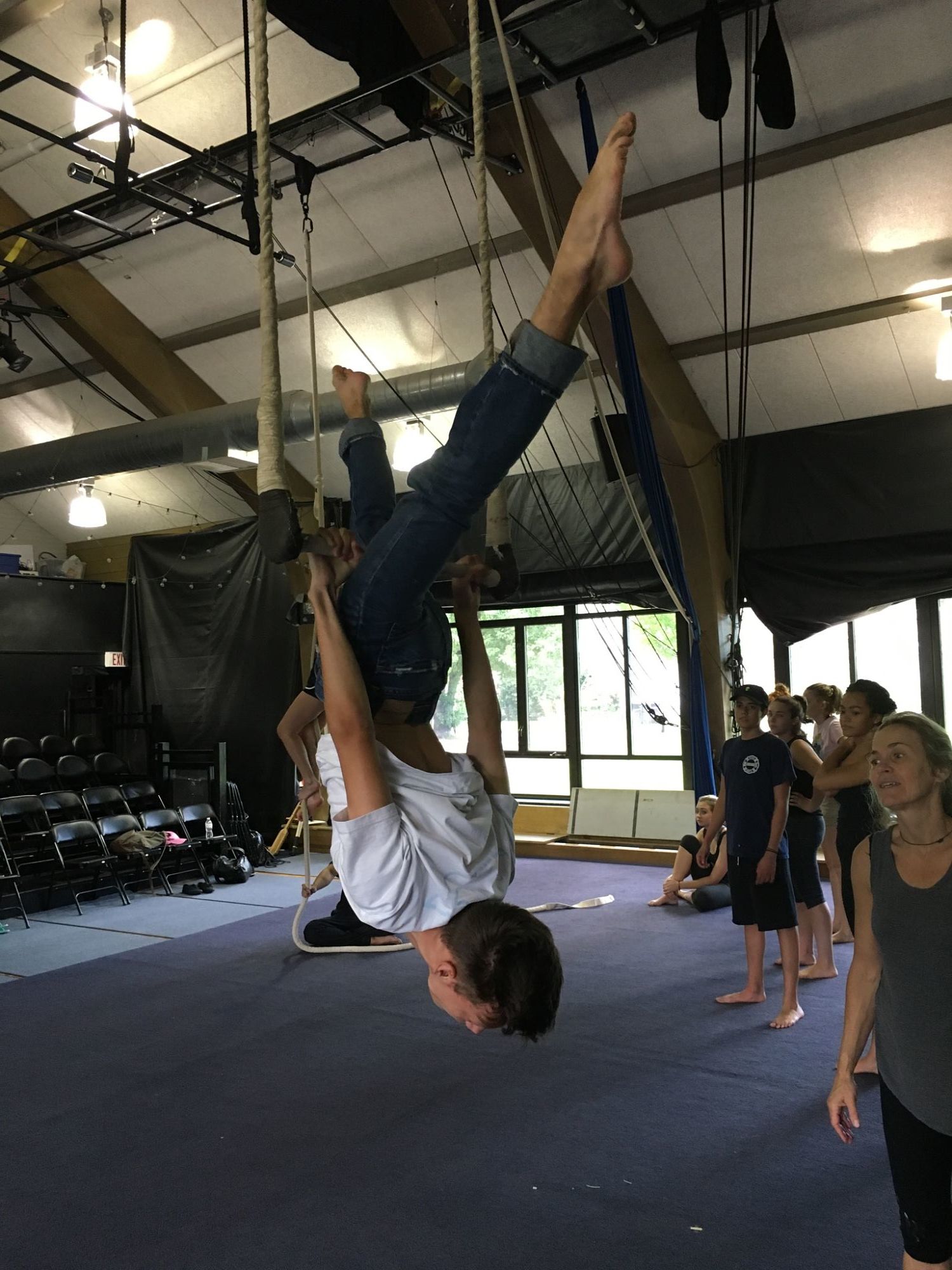
The beginning of Circus Arts at The Actors Gymnasium.
The beginning of Circus Arts at The Actors Gymnasium.
FACULTY
Chair - Theatre
Ben Dicke holds a Master of Fine Arts in Theatre Performance from the Chicago College of Performing Arts at Roosevelt University as well as a Bachelor of Arts in Theatre Education from Sterling College. He has worked as a professional actor for twenty years in regional markets throughout the country.
Chief of Staff
Emily is a seasoned professional with multiple years of teaching experience at the Denver Center Theatre Academy. She holds a BFA in Musical Theatre from the University of Oklahoma.
Buck has been working as the Technical Director/Production Manager for The Chicago Academy for the Arts since 2004. He is a Member of the Illinois Theatre Association and the CAA representative to the USITT.
Sarah Grant has been a faculty member at the Academy since 2019, where she directs and teaches in the Theatre and Musical Theatre Departments. She holds a master’s degree in the Humanities from the University of Chicago.
Using Robert Cohen’s Acting One, Academy student’s second year of Acting focuses on identifying the strengths of Department students and matching those with great characters from faculty selected material. Plays such as Bert Royal’s Dog Sees God and Naomi Iizuka’s Good Kids allow for continued focus on giving students greater access to their own vocal and physical power by offering them relatable characters in contemporary settings.
Most Juniors and Seniors can expect to find placement in Advanced Acting. The work pursued in this laboratory is meant to push students to delve deeply into the psychological needs of character. Using the carefully curated material from essential dramatic literature, both classical and contemporary, faculty use their familiarity with the student’s previous work to force them out of habitual tendencies and “easy” choices. Uta Hagen’s Respect for Acting and Robert Cohen’s Acting Power are read and discussed in rotation through years one and two of this class.
A two semester course, Directing encourages students to engage with material on a profound dramaturgical level. Culminations in this class include an evening of student-directed scenes in semester one and a group directed show in semester two. Scenes in semester one are chosen from the essential playwrights from the canon of twentieth-century American drama including Tennessee Williams, Arthur Miller, Lorraine Hansberry, Lillian Hellman, and others.
Using Charna Halpern and Del Close’s seminal text Truth in Comedy, this class will encourage students to stretch the limits of their imaginations. Student’s insecurities about “revealing self” to their audience will be discussed and explored in a safe and fun environment.
Taught alongside Directing, Design classes allow students to realize a complete production. Working with both computer-based rendering applications and more conventional drafting methods, student’s designs will receive showcases alongside their directing project culminations.
Mandatory for a thorough understanding of the craft of Theatre-making is a solid grasp of “backstage” terminology, practices for Theatre safety, and techniques for stagecraft, lighting and sound operation. Students in this class can expect to learn how to safely and properly handle power tools and hand tools, how to create lighting and sound cues, and how to correctly identify the numerous technical aspects of theatre production.
With so many opportunities in the growing industry of digital media, a contemporary actor’s ability to adjust their performance techniques for the camera lens is essential. In this class, students will receive an introduction to on-camera technique for commercials, television, and film.
Other semester-long classes and workshops that occur during a student’s tenure in The Academy Theatre Department include Script Analysis, Stage Management, Voice & Movement, Makeup for Stage and Screen, Costume Concepts, Circus, Combat for Stage and Screen and Playwriting.
The Academy Theatre Department routinely invites guest speakers and resident teaching artists to connect students with the wider landscape of the industry. Recent and upcoming lecturers and instructors include Peggy Roeder, Leah Urzendowski, Anthony Courser, Adrian Danzig, Sylvia Hernandez-DeStasi, Kevin Beverley, Alex Aguilar, Orion Couling, Sara Gammage, and others.
*Course titles reflect transcripts for the 2017-2018 freshman class.
















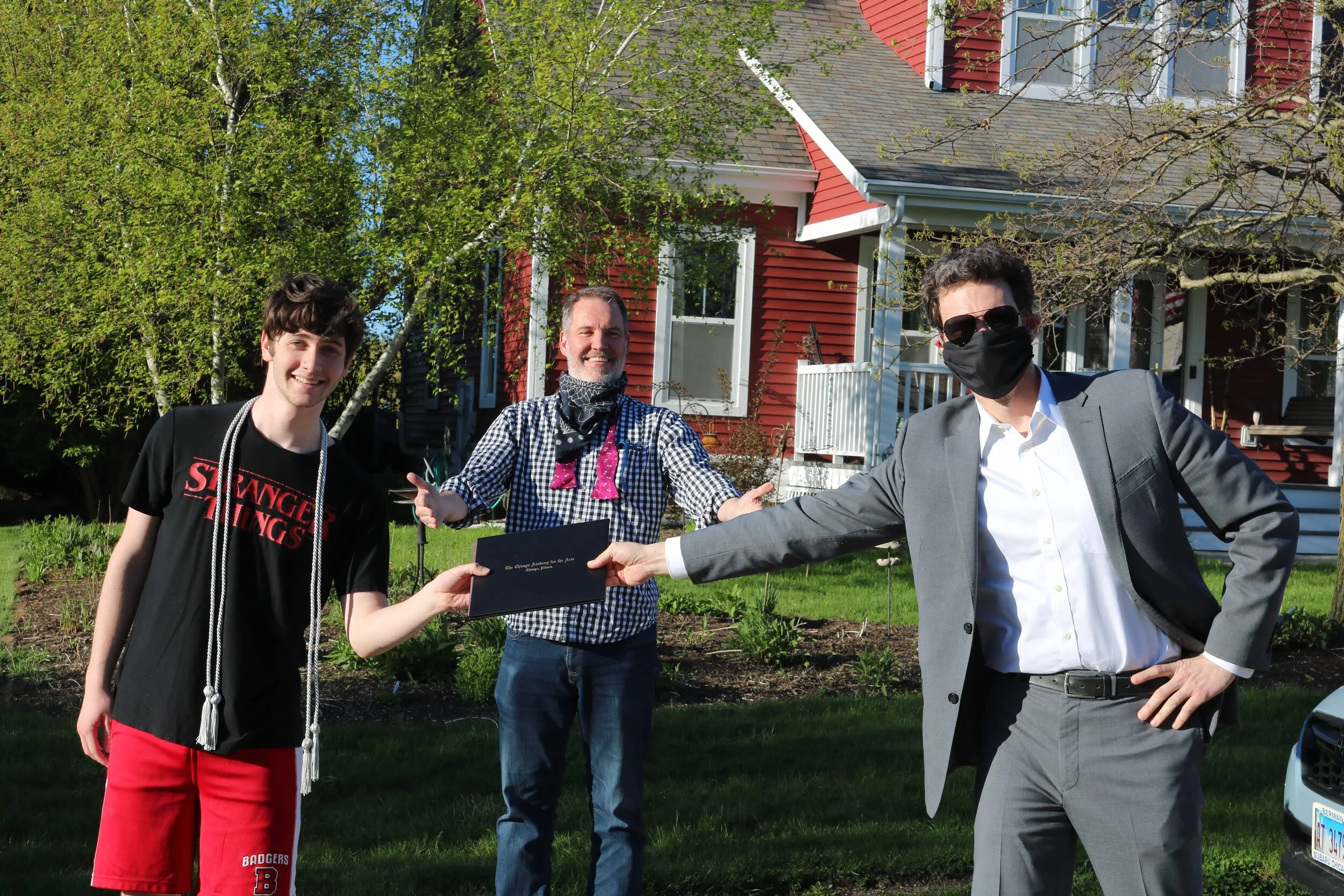


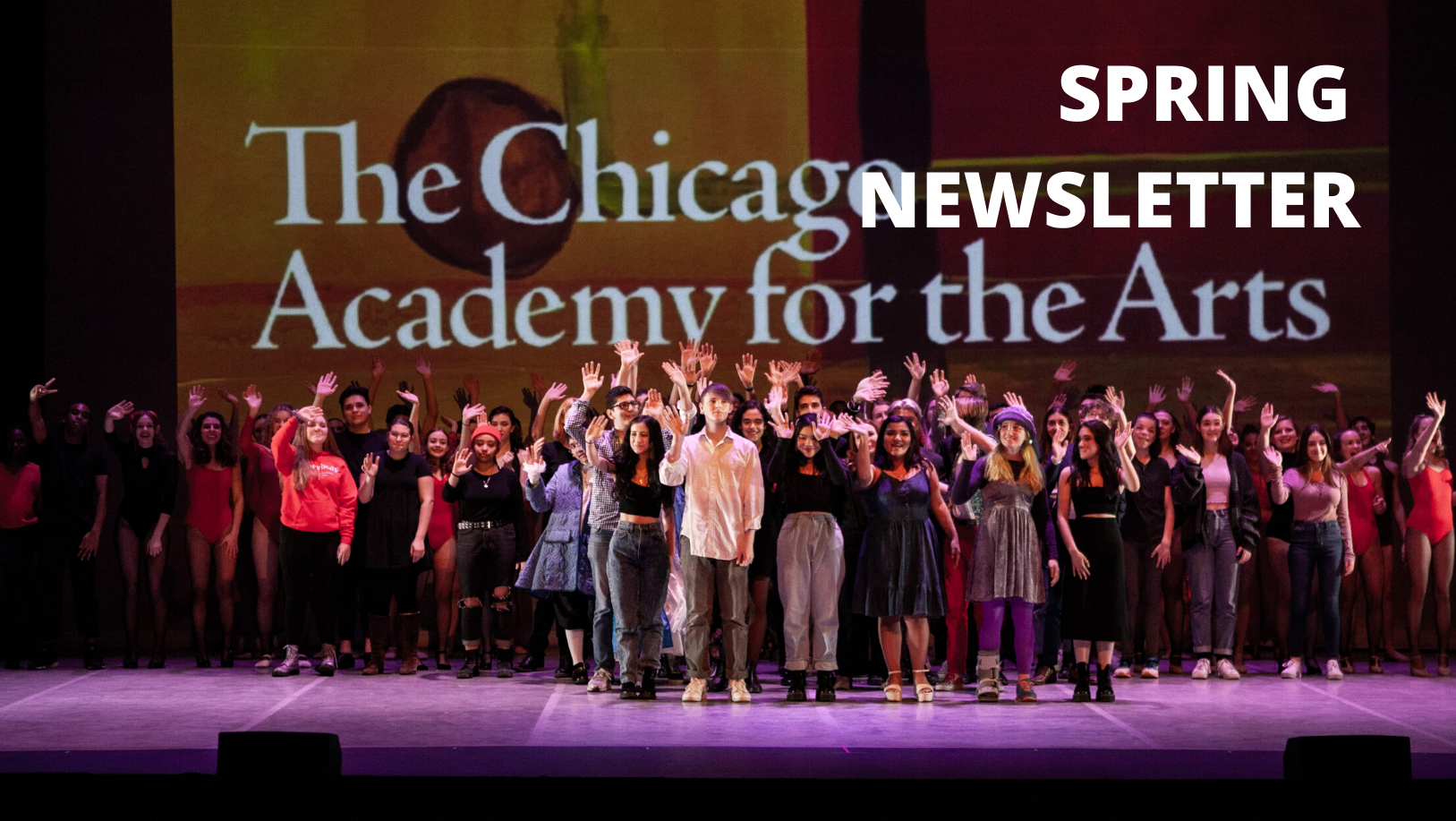













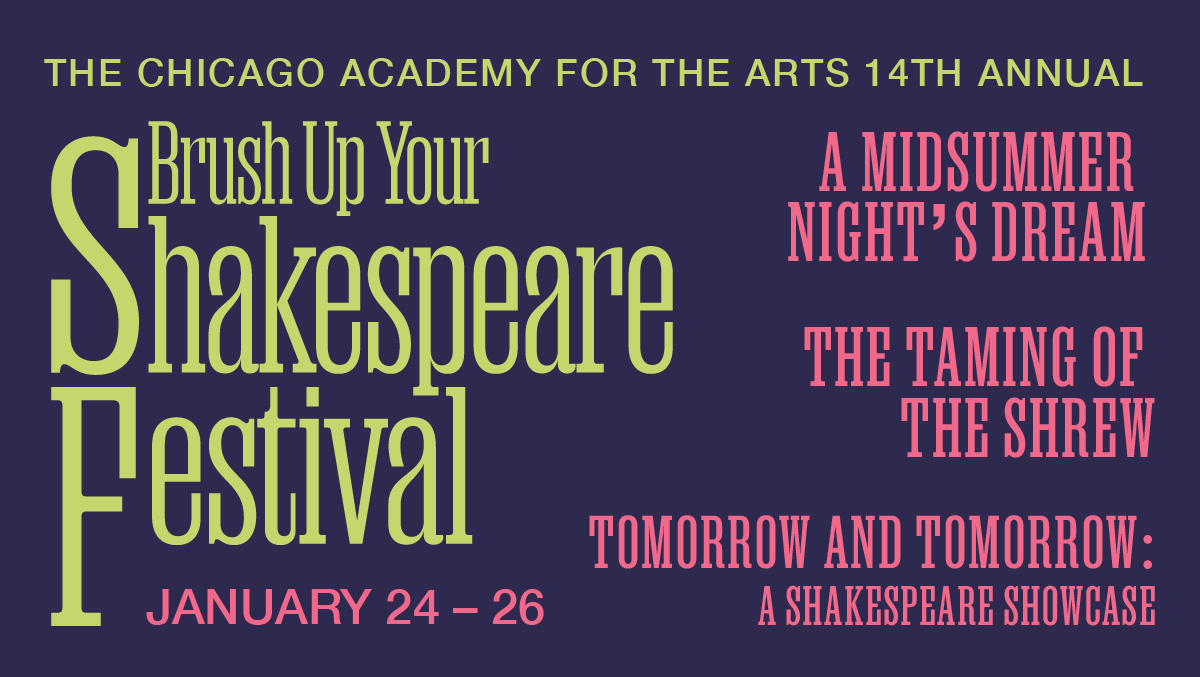



















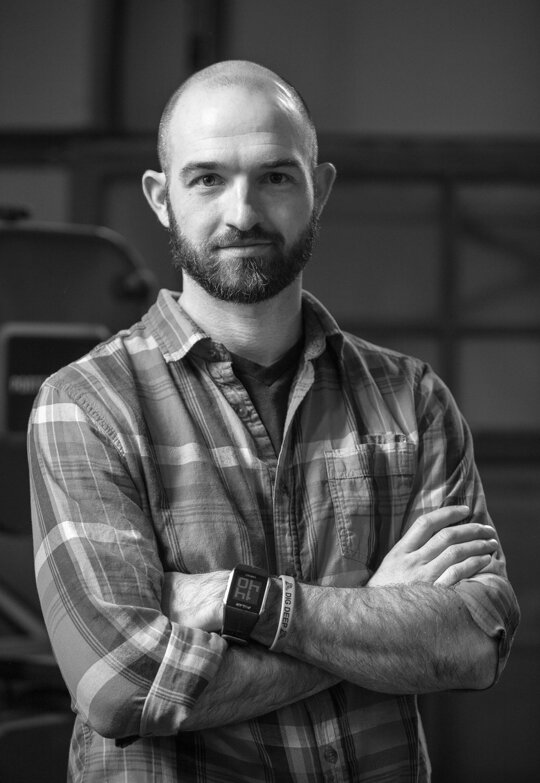
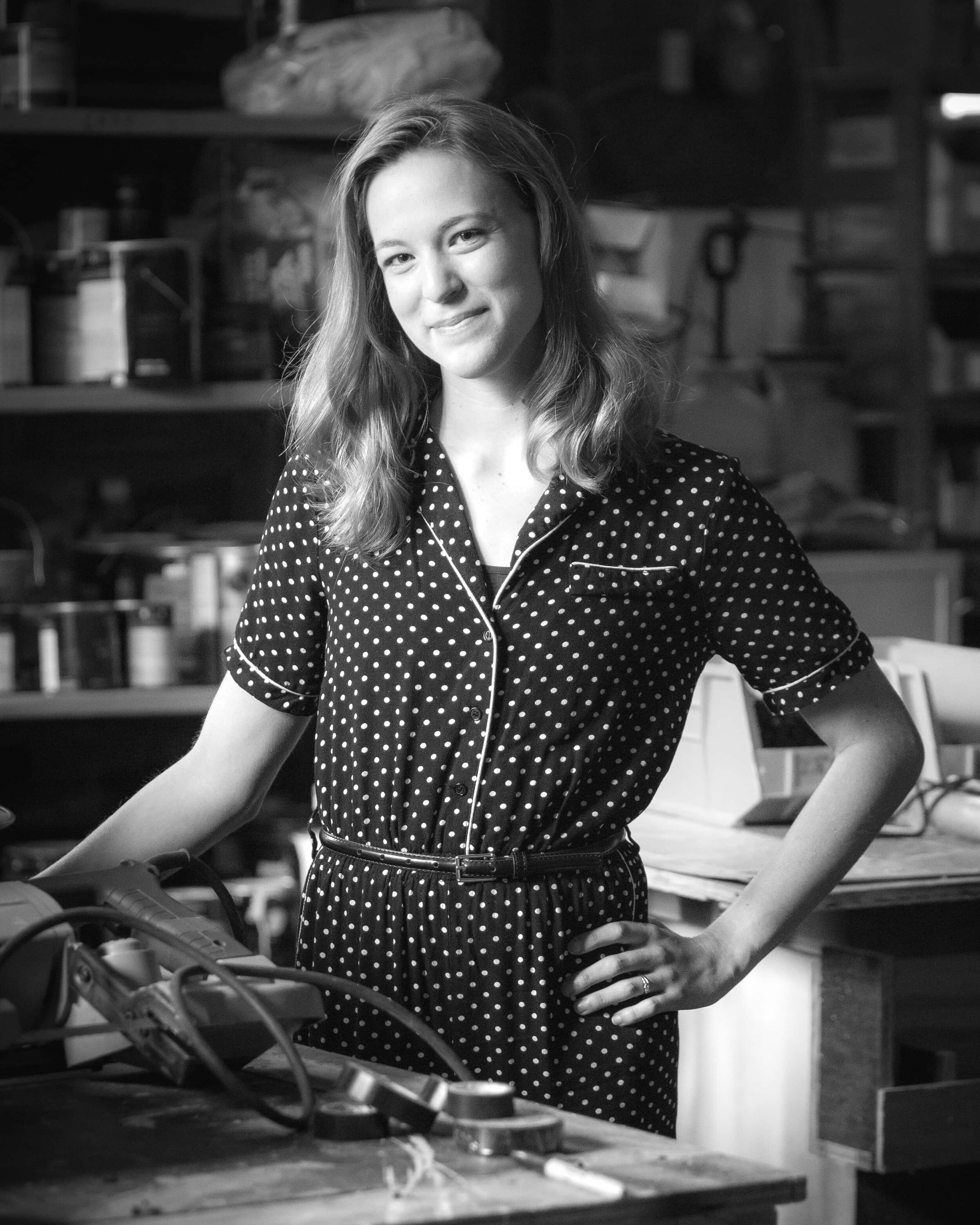

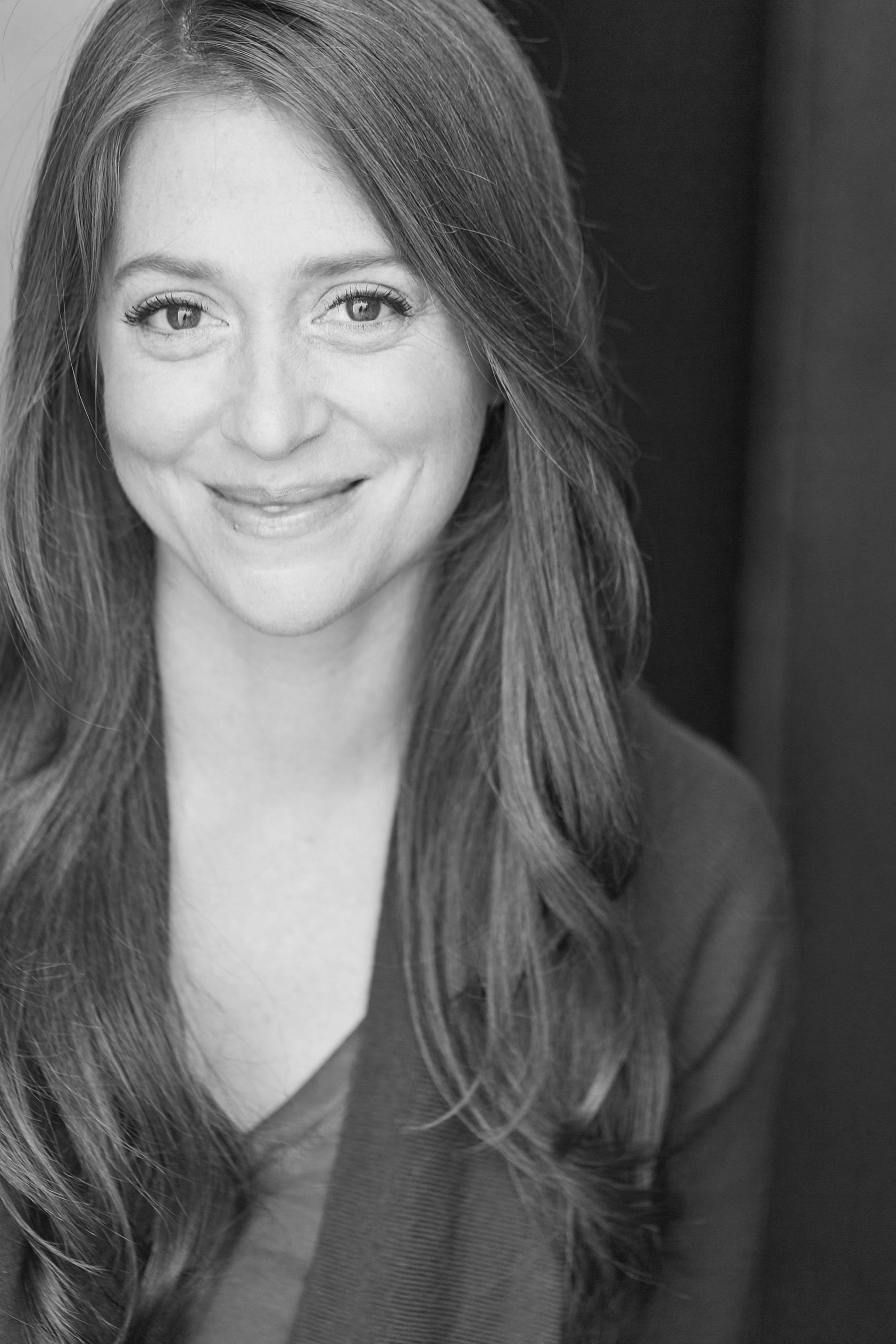
This class is designed to provide new Theatre Department students with the essential tools for approaching text and character. The first semester uses a “neutral voice” monologue aimed at helping students experience freedom from habitual vocal and movement patterns. Students also begin work with Shakespeare in their first semester. In the second half of year one, students focus on work from Timothy Mason’s The Less Than Human Club as a way of exploring intention and objective. Mason’s text give students direct access to these techniques as his characters are near Academy student’s ages and often mirror student’s unique personalities.